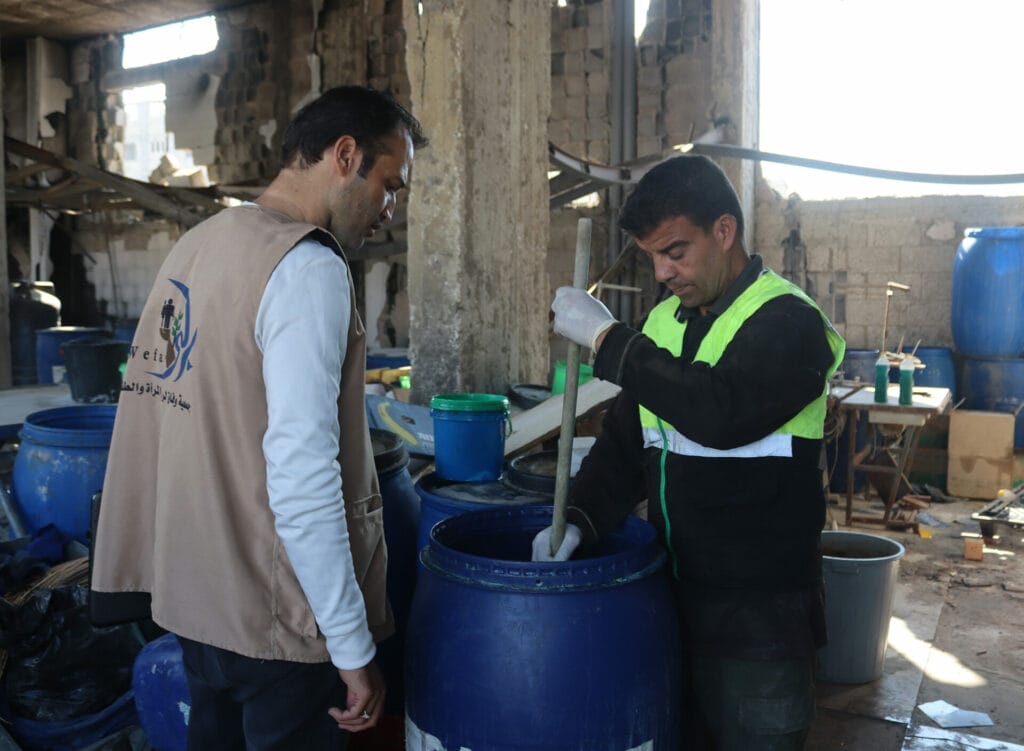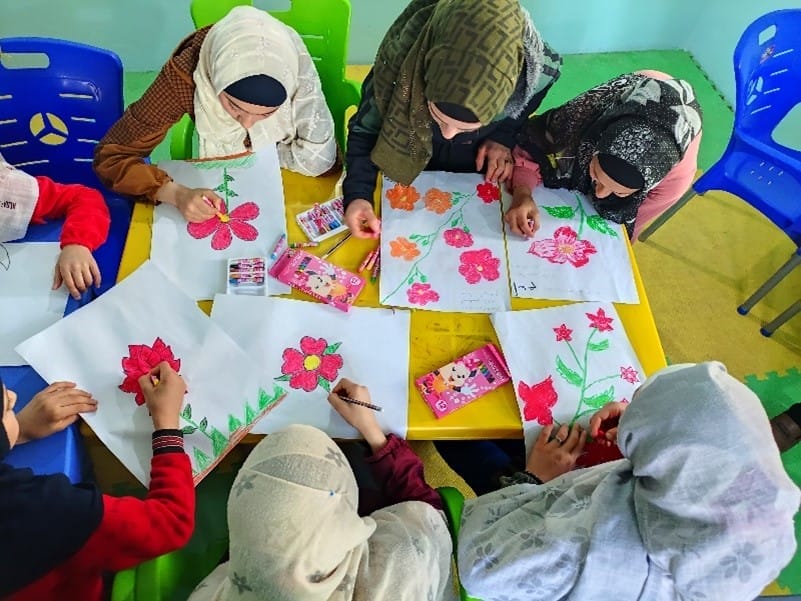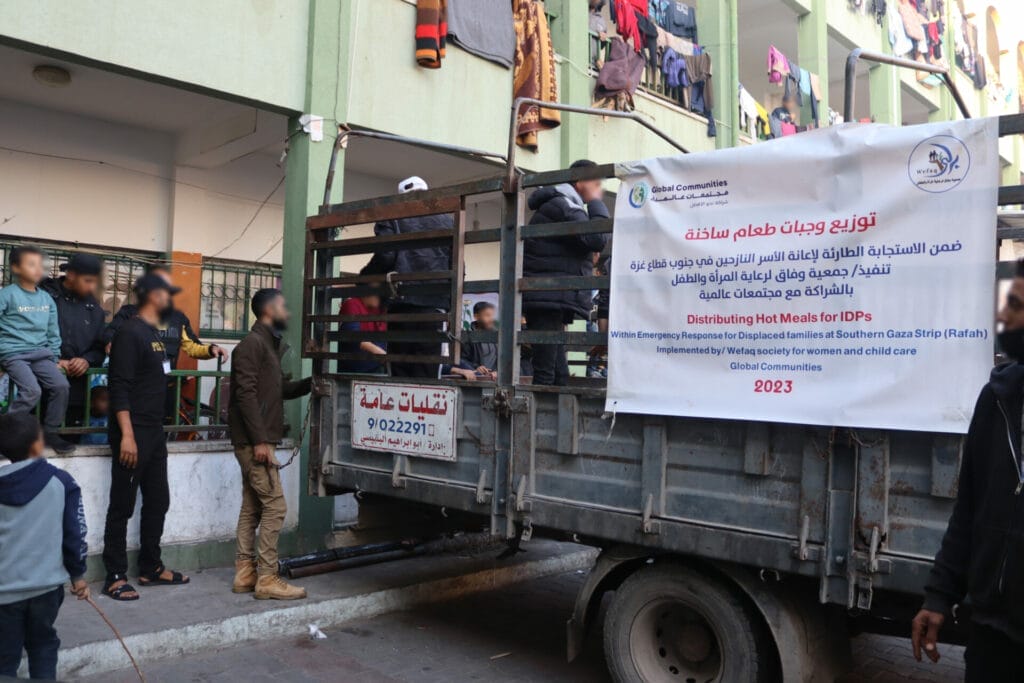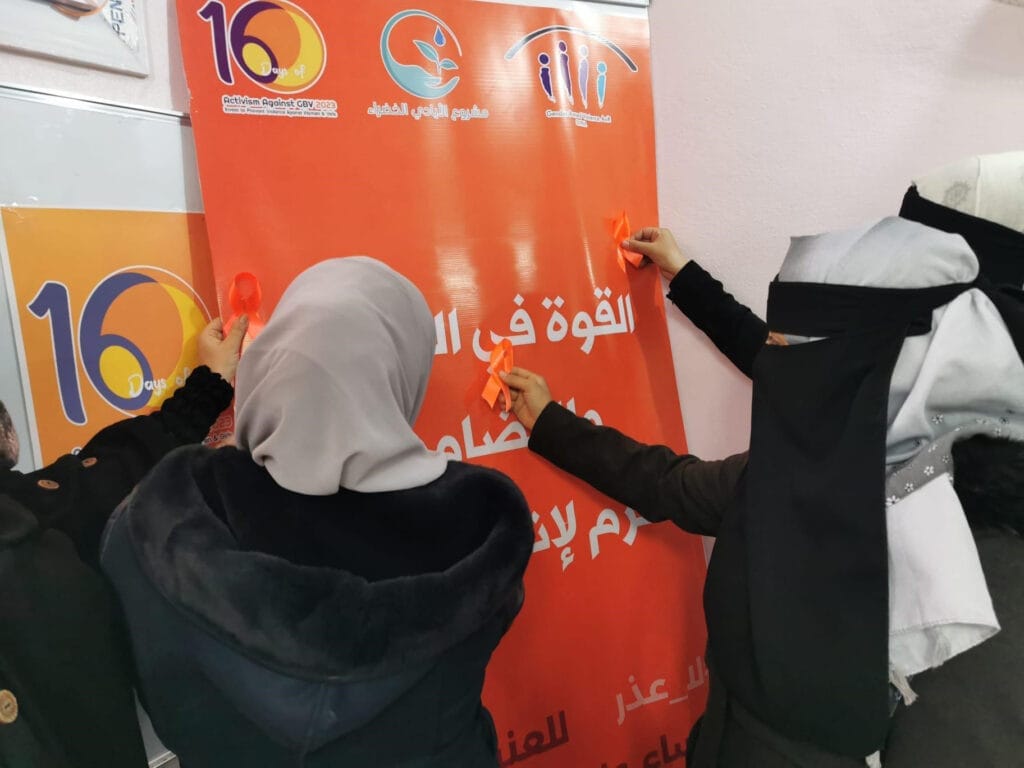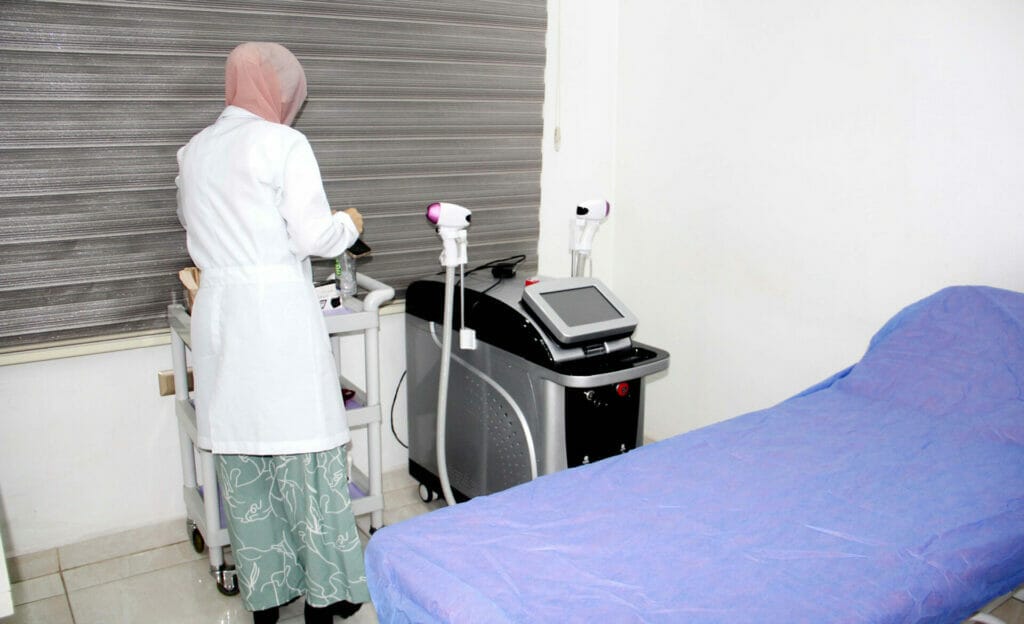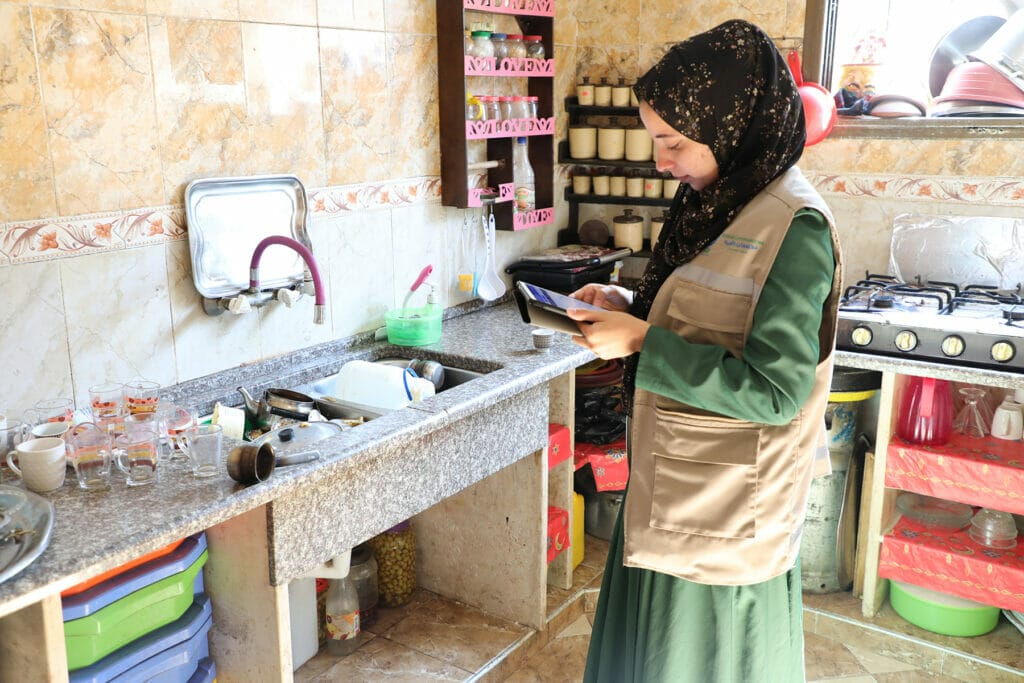From Destruction to Determination: How Grants are Reviving Gaza’s Small Businesses
Running a small business is challenging even in the best of times, but the war in Gaza has devastated local entrepreneurs, making it nearly impossible to sustain their businesses amid widespread destruction and displacement. According to a report by the United Nations Development Programme, around 85% of enterprises have halted their production. Meanwhile, 63% of…
Read MoreHumanity at Risk: Addressing Challenges to Principled Humanitarian Action
By Paula Rudnicka, Sr. Manager for Public Affairs. Audio production by Kallista Zormelo. For decades, the humanitarian principles of humanity, neutrality, impartiality and independence have underpinned humanitarian action. They provide a foundation for delivering aid with integrity and fairness, and they help ensure that assistance reaches those in need based on vulnerability and urgency, rather…
Read MoreA Message to the Community from NGOs in Gaza
In recognition of the need for NGOs to increase engagement with the community in Gaza, including increasing transparency and accountability, a coalition of Palestinian NGOs and International NGOs presents the below joint message: Firstly, we would like to convey our deep appreciation to the people of Gaza for their continued willingness to engage with NGOs,…
Read MoreGaza: New Israeli orders force thousands in Deir al-Balah to flee again, and disrupt last aid hub
New displacement orders issued by Israeli authorities have forced another mass movement of families and humanitarian workers from areas in Deir al-Balah – one of the only remaining areas in the occupied Gaza Strip with essential infrastructure and warehouses storing aid supplies. Many Palestinian families, already forcibly displaced countless times since October, are on the…
Read MoreAdapting for the Future Defined by Locally-Led Development: A Q&A with Our President Carrie Hessler-Radelet
By Paula Rudnicka, Sr. Manager for Public Affairs. Video production by Kallista Zormelo and Michael Kamel. Localization is one of the most significant movements shaping our industry today. Major donors are beginning to focus their philanthropy on those who are closest to the knowledge, action and impact. The shift towards localization is reshaping the role of…
Read MoreShifting Tides: Advancing Locally-Led Development & Humanitarian Action
By Paula Rudnicka, Sr. Manager for Public Affairs The concepts of localization and locally-led development are deeply woven into the current discourse about the state and the future of global development. Rooted in social movements that fought to end colonization, the localization agenda gained global traction in 2016 at the World Humanitarian Summit. Its two…
Read MoreGlobal Communities Ramps Up Hot Meal Distribution, Nutrition Assistance in Gaza
Amid widespread and severe food insecurity in Gaza, Global Communities, in collaboration with the World Food Programme (WFP), has started tripling the number of hot meals we are distributing daily. Since March 13, our team has increased its hot meal distribution from 10,000 meals per day to 30,000 hot meals per day, aiming to mitigate…
Read MoreProtecting Children in Emergencies: Perspectives from Syria and Ukraine
By Emily Galloway, Tarek Fakhereddin, Nataliia Biloshytska and Tania Dudnyk Global Communities has a rich history of providing emergency aid and protection services to refugees and internally displaced people in many crisis settings, from Ukraine and Gaza to Syria and Guatemala. This includes our Child Protection in Emergencies (CPiE) programming, which supports the well-being of…
Read MoreAdapting and Innovating in a Volatile World: Reflections from the 2024 Fragility Forum
By Paula Rudnicka, Sr. Manager for Public Affairs Last month, the World Bank held its 2024 Fragility Forum – a biannual conference that brings together policymakers, researchers and practitioners from humanitarian, development and peacebuilding communities to exchange knowledge and ideas about how to improve our approaches in fragile, conflict and violence-affected settings. This year’s theme…
Read More‘Survival, Resilience and Solidarity’: Our Relief Efforts in Gaza
By Maureen Simpson Now over four months in, the humanitarian crisis in Gaza has reached catastrophic levels, with one in four households facing famine levels of food insecurity and severely limited access to safe water. “Our mornings begin with a silent check – are the kids, is everyone, alright?” said Mohammad, one of 74 staff…
Read MoreGlobal Communities and Local Organizations Mobilize to Provide Emergency Meals in Gaza
Gaza Strip – Global Communities, in collaboration with Palestine Islamic Bank (PIB) and other partners, recently distributed meals to families displaced by the ongoing conflict in Gaza. The initiative reached over 2,800 families, amounting to assistance for more than 14,000 individuals. Each received at least two hot meals amid dropping winter temperatures. In this collaborative…
Read MoreGlobal Communities Mourns Loss of Colleague and Family in Gaza Airstrike
Gaza Strip — We are deeply saddened to confirm the tragic loss of our colleague, Hani Jnena (33), along with his family in Gaza, including his wife, Abeer (32), and their two young daughters, Mariam and Zayna, aged 4 and 2. Based on the information currently available to us, the young family was killed on…
Read MorePreventing and Responding to Gender-based Violence in Humanitarian Settings
By Emily Galloway, Sr. Advisor for Global Protection, Global Communities Gender-based violence (GBV) is a pervasive issue that disproportionately affects women, girls and vulnerable individuals during emergencies. In disaster or conflict-affected areas, gender inequalities and power dynamics can both exacerbate existing risks of GBV and create new ones. While risks are always context-specific, we see…
Read MoreGlobal Communities and Bank of Palestine Team Up to Provide Winterization Aid in Gaza
Gaza Strip — As part of its ongoing humanitarian efforts in the Gaza Strip, Global Communities is collaborating with the Bank of Palestine to distribute winter clothing vouchers. The Bank of Palestine has committed to funding this program, aiming to reach 1,000 families with much-needed support during the cold season. Despite the scarcity of resources,…
Read MoreOpen Call for an Immediate Ceasefire in the Gaza Strip and Israel
#CeasefireNow: Open Call for an Immediate Ceasefire in the Gaza Strip and Israel to Prevent a Humanitarian Catastrophe and Further Loss of Innocent Lives We have witnessed unfathomable death and destruction in the Gaza Strip and Israel. Thousands of people have been killed, injured, displaced, and nearly two hundred remain held hostage, including children and elderly.…
Read MoreHow Vitas Jordan is Supporting Medical Centers through a New Digital Loan Product
By Lizzie Hickman The COVID-19 pandemic exposed weaknesses in the global medical supply chain. Shortages of personal protective equipment (PPE), ventilators and medications made it challenging for hospitals and clinics to treat patients and contain the virus. In Jordan, where public hospitals lacked beds and ventilators, the government ramped up domestic production of PPE and…
Read MoreProviding Professional Development Opportunities to Graduate Engineers in the Gaza Strip
By Ziad Bakri and Nour Zaqqout Seven graduate students are one step closer to building a better future for themselves and the world at large after completing a seven-month engineering fellowship focused on water, sanitation and hygiene (WASH) construction projects in the West Bank and Gaza. Global Communities welcomed the first cohort of engineers in…
Read MorePass the Mic: Using Data to Improve and Adapt Emergency Food Assistance Programs
By Paula Rudnicka, Sr. Manager for Public Affairs at Global Communities Using reliable, quality data in humanitarian settings is critical to ensuring that life-saving interventions reach affected populations in a timely and equitable manner. While evidence-based decision-making should be a trademark of any emergency response program, data collected in crisis contexts is not always translated…
Read More
